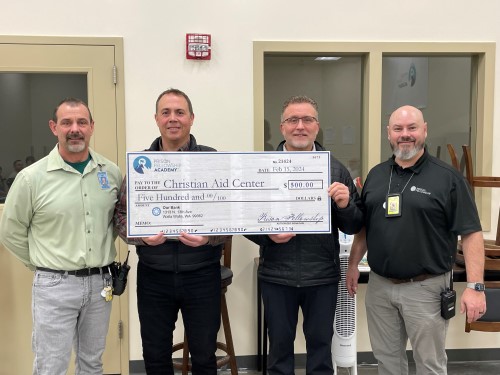In 2019, the Washington State Penitentiary (WSP) launched a transformative Prison Fellowship program, aiming to foster rehabilitation and community among incarcerated individuals. The initiative, spearheaded by contracted employee John Tank, faced immediate challenges as the onset of the COVID-19 pandemic forced a halt before it could fully take root in the East complex.
Despite these setbacks, the program found new life in the medium complex's Victor Unit post-pandemic. A dedicated group of staff, working closely with Tank, spent two to three months laying the groundwork for the initiative. Their efforts included transferring select incarcerated individuals from the William Unit to ensure a diverse and committed group of participants.
The Prison Fellowship program at WSP is notable for its inclusivity. It caters to incarcerated individuals serving a wide range of sentences, from short-term to life sentences, and welcomes individuals of all races and religious backgrounds, despite its Christian foundations. This diverse participation underscores the program's universal appeal and its potential for widespread impact.
Initially, the program offered morning and afternoon sessions led by staff. Recognizing the need for more flexibility, it soon expanded to include evening sessions facilitated by volunteers. The curriculum covers a broad spectrum of topics, from core values and life skills to victim impact awareness and relapse prevention. Volunteer-led courses add further depth, featuring the Alpha course, Celebrate Recovery, Financial Peace University, and more.
“I've taken all the other classes that DOC offered in the past and I wasn't really sold on this class until I looked at the curriculum and saw some of the stuff that is different,” said James, an incarcerated individual at WSP. “It veers away from the basic stuff like anger management. I've been searching for the answer to the same question since I got here ‘Why do I continue to make the same mistakes that I know are bad for me.' This class and the curriculum helped me get to my aha moment where I finally figured that out.”
The outcomes of the Prison Fellowship program have been overwhelmingly positive. Staff report a marked improvement in the atmosphere and behavior within the unit. The program has also created employment opportunities for incarcerated individuals, enabling them to assist in various capacities, from classroom support to volunteer coordination.
“All the guys in the program are on the B side of the unit and it is noticeably different than the A side,” said David Window, a Correctional Unit Supervisor for Victor Unit at WSP. “The unit is much cleaner, and the behavior of the individuals is more levelheaded and slower to overreact.
Community and staff engagement has been a crucial component of the program's success. Initiatives like the Angel Tree program, which provides gifts for children, and fundraisers that support local charities such as the Christian Aid Center, highlight the program's broader social impact. In February, the class raised 500 dollars to be donated to the Christian Aid Center. Additionally, efforts to show appreciation to the penitentiary staff, such as distributing healthy snacks, have fostered a supportive environment for both incarcerated individuals and employees.
“I was already on this journey on my own before I started this class but doing it alone was starting to weigh me down,” said Rony Celis, an incarcerated individual at WSP. “I felt like giving up and blowing up all the progress I had made because there were so many different ideals clashing inside of prison. Now, with this class, we may all be on our own journeys, but we are on the same ship and able to lean on each other to stay successful.”
The program just celebrated its first graduation in April, with program directors and donors in attendance. The second Prison Fellowship Academy class is scheduled to start in May, with a target enrollment of 30-40 participants. This continued growth reflects the program's established success and the ongoing commitment of its leaders.


